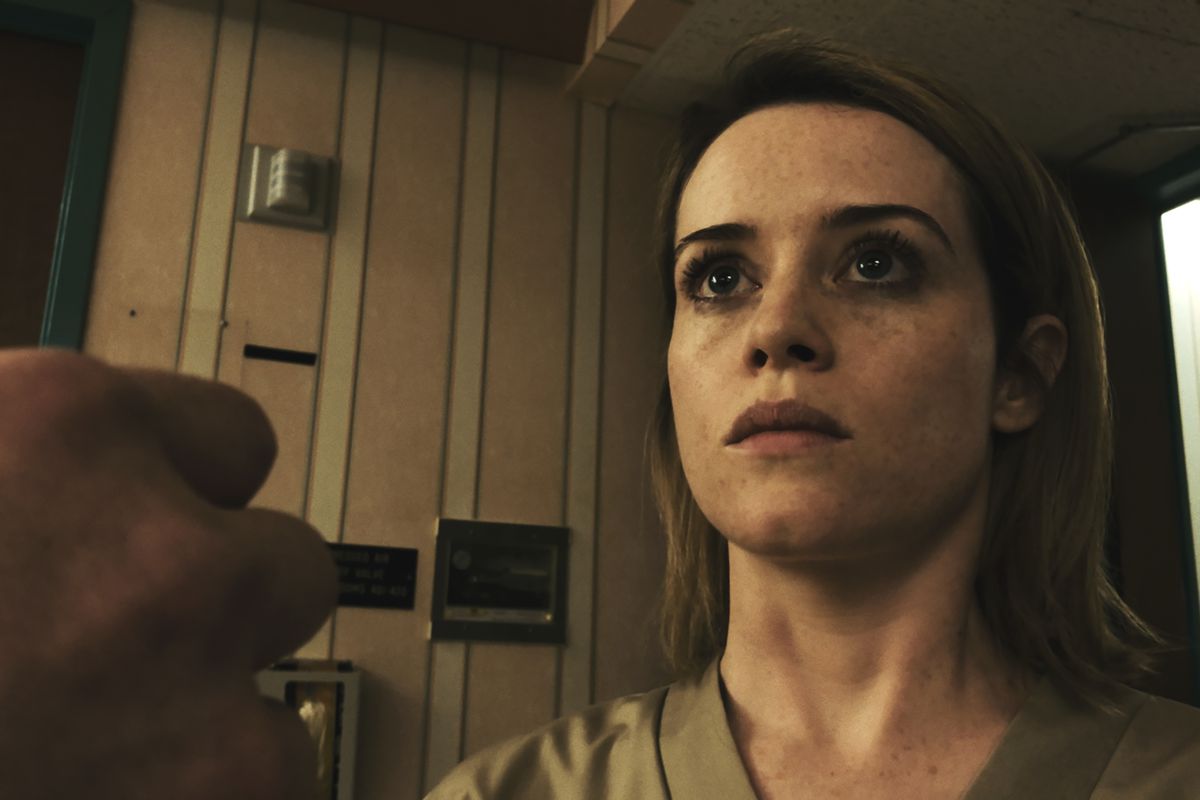Movie Review: “Unsane” (R)
![]() There were plenty of us bummed a few years ago at the announcement that writer/director Steven Soderbergh would retire from filmmaking. Lucky for us, though, Soderbergh still puts out more work as a retiree than a lot of working veteran filmmakers do. The independent giant behind “Sex, Lies, and Videotape” follows up 2017’s entertaining heist picture, “Logan Lucky” (affectionately referred to in some circles as “Ocean’s 7/11”), with the new Hitchcockian psychological thriller “Unsane.”
There were plenty of us bummed a few years ago at the announcement that writer/director Steven Soderbergh would retire from filmmaking. Lucky for us, though, Soderbergh still puts out more work as a retiree than a lot of working veteran filmmakers do. The independent giant behind “Sex, Lies, and Videotape” follows up 2017’s entertaining heist picture, “Logan Lucky” (affectionately referred to in some circles as “Ocean’s 7/11”), with the new Hitchcockian psychological thriller “Unsane.”
 In “Unsane,” business woman Sawyer Valentini (Claire Foy) is involuntarily committed to a psychiatric ward after seeking a bit of medical advice. Once inside, she becomes convinced that hospital orderly David Strine (Joshua Leonard) is actually a man whose been stalking her for years on the outside. Of course, no one is quick to believe Sawyer, but then why would they? After all, she is in a psychiatric ward. As the story progresses, Soderbergh ratchets up the tension and asks us to decide for ourselves whether this fiercely independent woman’s claims are accurate or if she’s completely delusional.
In “Unsane,” business woman Sawyer Valentini (Claire Foy) is involuntarily committed to a psychiatric ward after seeking a bit of medical advice. Once inside, she becomes convinced that hospital orderly David Strine (Joshua Leonard) is actually a man whose been stalking her for years on the outside. Of course, no one is quick to believe Sawyer, but then why would they? After all, she is in a psychiatric ward. As the story progresses, Soderbergh ratchets up the tension and asks us to decide for ourselves whether this fiercely independent woman’s claims are accurate or if she’s completely delusional.
Shot mostly on an iPhone and over the course of a brisk two weeks, “Unsane” is another one of Soderbergh’s more experimental efforts, and for all its crafty production value, tension, and psychological game playing, this movie also emerges as a story about mental illness, harassment, and female empowerment. Above all, though, “Unsane” is a shrewd indictment of our much-talked-about healthcare system. In other words, Soderbergh has quite a bit to say here, and he uses the thriller genre as a means to get to the heart of more serious matters.
At the center of “Unsane” is a fantastic performance by Foy. As a driven woman who refuses to take crap, Sawyer is a character plenty of women will relate too. She wants to be heard and treated with respect. Neither of these come easy to her in the outside world, but once she’s committed, these rights are virtually non-existent. Foy brings a toughness to Sawyer, but this wonderful actress is also able to bring an element of mystery to the table, making the psychological aspects of “Unsane” all the more effective. In short, Foy is committed in every sense of the word.
Foy is complemented by a terrific supporting cast. Ex-SNL player Jay Pharoah is charming and likable as a ward patient who gives Sawyer plenty of important advice on the inside. As a hospital staff member, a sweet-natured Leonard (of “The Blair Witch Project” fame) has the task of playing an individual who’s accused of not being the man he claims to be. A spunky Juno Temple is lively as a loose cannon of a ward patient who’s capable of truly awful behavior. And rounding out the cast is veteran Amy Irving as Sawyer’s concerned mother. The question is whether any of these characters can truly be trusted, and more to the point, whether any of them actually exist or if they are simply part of Sawyer’s so-called delusion.
From a story standpoint, screenwriters Jonathan Bernstein and James Greer cleverly deliver a tale that is very much ripped from today’s headlines, and from a directing standpoint, the gifted Soderbergh does a solid job of disorienting the viewer. All of that said, it should be noted that there does come a point in “Unsane” when we’re clued into whether or not Sawyer is actually one fry short of a happy meal, and admittedly, it’s at this point that certain aspects of this movie begin to unravel a bit. Without giving too much away, let’s just say that some actions committed by a specific character are a little difficult to buy into.
By and large, though, “Unsane” is an intriguing ride bolstered by a compelling lead performance, a terrific supporting cast, and timely themes. And you have to admire Soderbergh for the effort. Even when it doesn’t quite hit the target, “Unsane” is a consistent reminder that in this day and age, healthcare is enough to drive anyone crazy.
Articles related to “Movie Review: ‘Unsane’ takes on harassment, mental illness, and healthcare”
Movie Review: “Pacific Rim: Uprising” offers more robots vs. monsters action
Movie Review: “Death Wish” isn’t even controversial enough to be upsetting or debateworthy
Movie Review: “I Can Only Imagine” is well-intentioned but routine




